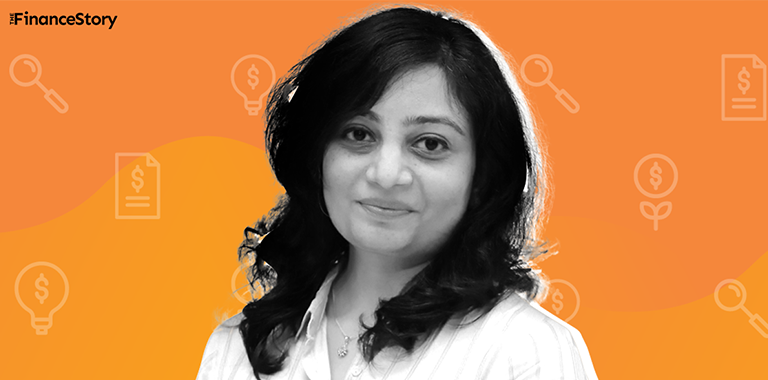- Jasmin B Gupta, Ph.D. and Co-Founder of LXME, is a multi-talented individual who refuses to limit herself to one role.
- Her fruitful journey with HDFC Bank and Kotak Mahindra Bank taught her a lot.
- Jasmin decided to make the leap from banking to fintech when she saw the potential of Neo-Banking platforms.
How did you progress from being a Personal Banker at HDFC Bank to the National Head of Digital Banking?
I’ve never been confined to a single job role for an extended period of time.
I am always willing to take a risk in order to gain a comprehensive understanding of how various industries operate.
After completing my MBA I was hired by HDFC Bank through the campus placement program. As of April 2021, it was India’s largest private sector bank by assets and the world’s 10th bank by market value.
I started as a Personal Banker and worked my way up to Branch Manager at the age of 26. I had to manage not just a team but also a branch as a profit center.
This experience proved extremely beneficial to me in the long term.
In 2009, I shifted to Kotak Mahindra Bank, where I oversaw the Digital Adoption and Learning and Development departments. I was in charge of a team of 250-300 people.
This provided me with a broad view of how various facets of a bank operate.
Is Neobanks the future of banking? What factors influenced your decision to establish the Fintech LXME?
After 11 wonderful and thrilling years at Kotak Mahindra Bank, I joined Equitas Bank as National Digital Banking Head.
I was in charge of Neo Banking (a digital bank with no branches), Fintech Alliances, and overall P&L management. My responsibilities included the launch of two Neo banks; NiyoX and Freo Save.
While setting up NiyoX I saw the enormous potential of Neo-Banking platforms and how they appeal more to millennials and Genz. Millennials and Genz are digital natives who rarely visit traditional banks.
These platforms seemed immensely scalable, and I wanted to be a part of this expanding sector.
In addition, I was given the opportunity to build a fintech accelerator, where I worked with over 125 fintech startups.
It depicted the future of banking in the next ten years, echoing one of Bill Gates’ famous quotes, “Banking is necessary, banks are not.”
Additionally, I am the National President of the Women’s Indian Chamber of Commerce and Industry (WICCI) and have always been engaged in women’s issues.
When I was deciding what to do next, I met Priti Rathi Gupta who was launching LXME, India’s first financial platform for women. She is the daughter of Anand Rathi.
I was captivated by the concept and agreed to join the team as a Co-Founder in 2022.
Women can get a variety of digital services at LXME, including savings, investments, loans, and a community that helps them with financial literacy.
What are the key differences between working at a bank and a Fintech startup?
Banks are typically bureaucratic and process-driven, whereas fintechs are agile and responsive.
You can take a decision in the morning and execute it the same day. Yes, there is a significant gap in quickness between traditional banks and fintech.
Banks are highly regulated, but fintechs are more open to experimentation and innovation.
And running your startup is tremendously thrilling; it provides a sense of accomplishment.
Is it a wise idea to pursue a career in FinTech?
Many US banks are shutting their branches, and India is likely to follow suit in ten years.
We don’t know how the digital banking/neo-banking space will develop. However, it is a nice area for risk-takers as innovations and regulatory changes are taking place in the fintech industry,
Consider the following before making the move:
- Do you want to bridge the gap between finance and technology?
- Do you believe in lifelong learning?
- Do you have new concepts for improving existing products and services?
- Do you want to be part of shaping a fast-evolving industry?
- Do you want a profession that requires multi-disciplinary abilities in finance, technology, law, marketing, and business?
If you responded yes to the majority of these questions, a career in Fintech is ideal for you.
You may also stand toe to toe with the traditional banking sector by working for a digital bank.
Finally, why is financial inclusion important for women?
We conducted an LXME Women Power Survey a while back, and the findings were, to say the least, shocking.
We discovered that 92% of women do not use any type of financial platform. Women’s participation is exceedingly low even on the most widely used platforms.
68% of women place family aspirations, such as their children’s education, ahead of personal ambitions, such as retirement plans, health/life insurance, or starting their own business.
Even if we look at the World Bank’s 2021 figures for financial inclusion for women, the figure is insignificant when compared to men.
Financial inclusion is critical for women. It is also critical that they become equal partners in the country’s economic success. They are a treasure trove of untapped wisdom.
Looking to accelerate your career in finance? Fill up this form to talk to an industry expert






